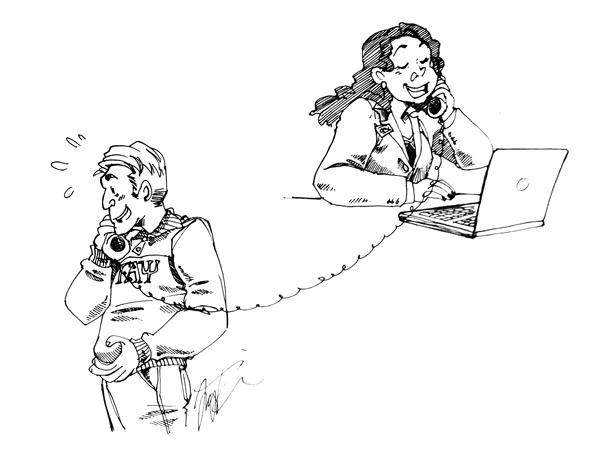Last year, I received a message on Twitter from a woman I had never met offering me an internship, just because she was a GW alumna and had enjoyed one of my Hatchet columns.
Sometimes, in the midst of all our complaining about the University, it’s easy to forget that there are thousands of alumni who dealt with the same issues long before we got here. Now, many are doing great for themselves, and they haven’t forgotten about us.

Though we may become frustrated with GW and question whether we should pour our money into this school, we’re lucky to have what seems like such a strong alumni network. As a new group of students heads into the workforce this year, we should be optimistic about their future success and willingness to help us down the road.
Our predecessors haven’t disconnected themselves from the student body just because they’ve graduated. While they don’t appear to be very attached to the University itself – our alumni giving rate is about 10 percent – it certainly feels like they’re there for us.
Our alumni know what it was like to be in our shoes, and they generally look back fondly on their experiences. In a survey released in 2012, about 65 percent of the Class of 2010 said they would choose GW again. This should reassure us that we made the right choice, too.
Rachel Brown, assistant provost for university career services, told me in an email that alumni help students through GWork, LinkedIn groups, career fairs, alumni dinners and classroom presentations. She said her office knows “based on conversations we have each day” that alumni like to hire other alumni.
Last month, the University released the results of a post-baccalaureate survey of the Class of 2013. I wasn’t surprised to see that 72 percent of those graduates chose to stay in D.C. and the Mid-Atlantic. They’re close enough to connect with us, and they often do.
Not only do we have an expansive alumni network, but individual student organizations also have their own unique ties to former students. Alumni of the student improv group receSs, for example, come back to campus to participate in events.
“Having a good alumni network allows us to kind of build upon the comedic base we’ve built in the past,” said Kevin Palermo, a sophomore member of receSs.
In my experience, alumni have come to the School of Media and Public Affairs to speak in almost all of my classes. They always offer a business card or an email address at the end of their talks. Sometimes, they even recommend that we use their names if we’re interested in an internship at their organizations. If I took each of them up on their offers, I’d have connections at places like Politico and CBS.
Many alumni, especially recent graduates, empathize with current students. They paid the high tuition, experienced the crushing pressure to find internships and even had some of the same professors. They will help us now because they’re often in a good position to do so.
It’s easy to name plenty of notable GW grads – like Kerry Washington, Dana Bash, Eric Cantor and Colin Powell – but they aren’t the only successful ones.
The University mainly used the 2013 post-baccalaureate survey to gauge how alumni were doing out on their own. The results are encouraging: A little more than 90 percent of respondents had secured their “next steps,” which means they were either employed, volunteering, furthering their education or had joined the military. More than 900 students filled out the survey, a 42 percent response rate.
After graduation, the Class of 2014 will not only start to advance their own careers, but also gain experience they can use to guide us.
Sarah Blugis, a sophomore majoring in political communication, is The Hatchet’s contributing opinions editor.





